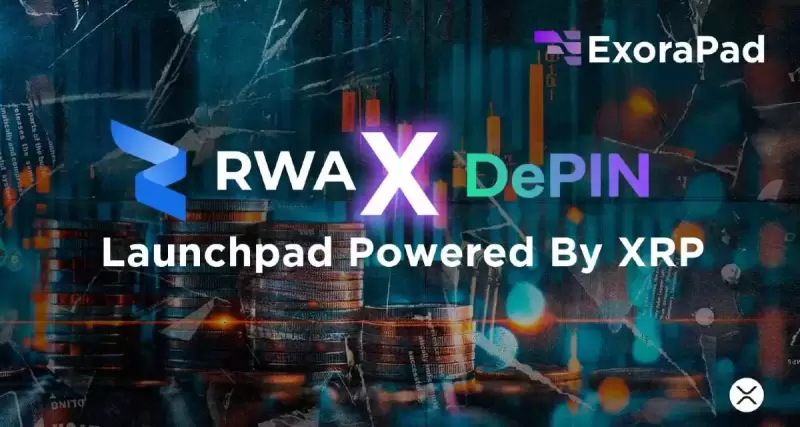 |
|
 |
|
 |
|
 |
|
 |
|
 |
|
 |
|
 |
|
 |
|
 |
|
 |
|
 |
|
 |
|
 |
|
 |
|
Cryptocurrency News Articles
Global Regulators Set the First Wide-Ranging Rules to Measure Cryptocurrency Transactions
Mar 25, 2025 at 10:30 pm
Global regulators have set the first set of wide-ranging rules to measure cryptocurrency transactions, reflecting a major transformation in the reporting

Global regulators have set the first set of wide-ranging rules to measure cryptocurrency transactions, a major transformation in the reporting of digital assets’ movements at the national level.
The International Monetary Fund has recently issued its seventh Balance of Payments Manual, bringing forth uniform regulations to monitor Bitcoin and other virtual currencies.
As reported by the IMF, over 160 nations have come together to build a new framework that fills enormous gaps in monitoring digital asset flows. Cryptocurrency transactions, which are estimated to be in trillions of dollars every year, have long been unrecorded or irregularly reported.
The guide proposes a classification system for cryptocurrencies. Bitcoin, for example, will be accounted for as a non-produced, non-financial asset – the same way nations account for land or natural resource rights.
Stablecoins such as Tether will be identified as financial instruments, while crypto services like mining and staking will be classified under computer services exports.
🚨 IMF Updates Crypto Classification in Global Finance
The International Monetary Fund (IMF) has updated its Balance of Payments Manual (BPM7) to better account for digital assets.
Bitcoin is now classified as a non-produced nonfinancial asset, while stablecoins and tokens… pic.twitter.com/tQHzRw0z8W
— Cryptic (@Cryptic_Web3) March 23, 2025
Two nations have taken significant steps in cryptocurrency governance. The United States has formed a strategic Bitcoin reserve, holding about 200,000 BTC for the most part obtained through lawful seizures. U.S. President Donald Trump signed an executive order blocking future sales of the assets.
Meanwhile, El Salvador continues with its Bitcoin plan. The nation has amassed 6,125 BTC, worth around $538 million, despite a $1.4 billion deal with the IMF in December 2024 that called for limiting cryptocurrency transactions.
These national cryptocurrency reserves will now be monitored in the same way as cross-border land acquisitions or spectrum license purchases, according to the new guidance from the IMF. This provides an unprecedented level of transparency into how various nations are managing digital assets.
The response of the crypto community has varied. Some see the manual as a grand recognition of Bitcoin’s status, while others caution against making too much of the report. Max Keiser, Bitcoin advisor to Salvadoran president, stated the IMF acknowledged Bitcoin as “digital gold” – but the IMF did not endorse any such status.
BREAKING: The IMF has just recognized Bitcoin as defacto digital Gold.
SOURCES confirm the IMF is adding Bitcoin to their own reserves and will soon include Bitcoin in their SDR basket/ index as well. https://t.co/fN1takq7SA— Max Keiser (@maxkeiser) March 23, 2025
The countries using cryptocurrency will be the ones to benefit the most from these new reporting formats. In Nigeria alone, for instance, more than 35% of adults claim to use or own cryptocurrencies, as revealed by a 2023 KuCoin report.
Although the guide does not grant legal status to cryptocurrencies, it is a step towards realizing their international economic importance. Banks and governments will be able to track and report cryptocurrency transactions across borders using clear and consistent methods.
The IMF upgrade marks an increasing acknowledgment of cryptocurrencies as a significant part of the global finance system, despite controversies surrounding their future role.
Disclaimer:info@kdj.com
The information provided is not trading advice. kdj.com does not assume any responsibility for any investments made based on the information provided in this article. Cryptocurrencies are highly volatile and it is highly recommended that you invest with caution after thorough research!
If you believe that the content used on this website infringes your copyright, please contact us immediately (info@kdj.com) and we will delete it promptly.
-

-

- Cryptocurrency Entrepreneur Chun Wang and a Team of 3 Astronauts Set Off on a Historic SpaceX Flight
- Apr 01, 2025 at 04:10 pm
- output:input: Cryptocurrency entrepreneur Chun Wang and a team of three astronauts set off on a historic SpaceX flight Monday to explore the earth's polar regions from orbit.
-

-

-

-

-

-

-

- Hut 8 Announces Its Majority Stake in American Bitcoin (Formerly Known as American Data Center)
- Apr 01, 2025 at 03:50 pm
- Crypto mining and infrastructure firm Hut 8 announced its majority stake in American Bitcoin (formerly known as American Data Center), a company founded by a group of investors that includes Donald Trump Jr. and Eric Trump.




























































